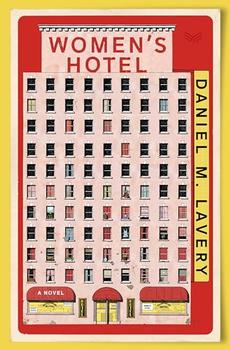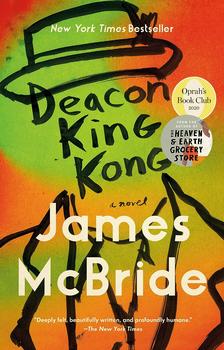Summary | Excerpt | Reading Guide | Reviews | Beyond the book | Read-Alikes | Genres & Themes | Author Bio

A Novel
by Daniel M. LaveryFrom the New York Times bestselling author and advice columnist, a poignant and funny debut novel about the residents of a women's hotel in 1960s New York City.
The Beidermeier might be several rungs lower on the ladder than the real-life Barbizon, but its residents manage to occupy one another nonetheless. There's Katherine, the first-floor manager, lightly cynical and more than lightly suggestible. There's Lucianne, a workshy party girl caught between the love of comfort and an instinctive bridling at convention, Kitty the sponger, Ruth the failed hairdresser, and Pauline the typesetter. And there's Stephen, the daytime elevator operator and part-time Cooper Union student.
The residents give up breakfast, juggle competing jobs at rival presses, abandon their children, get laid off from the telephone company, attempt to retrain as stenographers, all with the shared awareness that their days as an institution are numbered, and they'd better make the most of it while it lasts.
As trenchant as the novels of Dawn Powell and Rona Jaffe and as immersive as The Marvelous Mrs. Maisel and Lessons in Chemistry, Women's Hotel is a modern classic—and it is very, very funny.
The novel unfolds in a somewhat meandering manner, like a slice-of-life series of scenes rather than a tightly plotted story. But what seems like a casual recounting of disparate events aligns into a deceptively complete and carefully crafted narrative. What's more, the deadpan comedic tone throughout leaves one unprepared for an emotionally impactful ending. It's an effective management of mood — it takes a turn for the serious without becoming bleak. The characters with sad stories are never entirely hopeless. For instance, when one of the elder women of the hotel is encouraged to move to a nursing home to stave off starvation after breakfast service is discontinued, she decides to turn to shoplifting instead. This kind of can-do attitude is a mainstay and necessity for the ladies of the Biedermeier. The most winning quality of Women's Hotel is Lavery's humor, particularly as it manifests in satirical commentary on a time before second-wave feminism and other liberation struggles really took root in the collective consciousness...continued
Full Review
 (725 words)
(725 words)
(Reviewed by Lisa Butts).
 In Women's Hotel, Daniel Lavery introduces readers to the fictional Biedermeier, which is based on the real-life phenomenon of residential hotels for women only that existed in New York City throughout the 20th century. As women began working outside the home on a mass scale, they traveled in droves to the city to make lives for themselves, but there was still a social stigma surrounding the prospect of a woman living alone, and/or in the vicinity of men. The women's hotel, something like a dormitory, was viewed as a more respectable option, without being as didactic as the religious-run "moral homes," which required women to follow a list of behavioral rules and attend regular worship services. Typically, residents of these hotels were...
In Women's Hotel, Daniel Lavery introduces readers to the fictional Biedermeier, which is based on the real-life phenomenon of residential hotels for women only that existed in New York City throughout the 20th century. As women began working outside the home on a mass scale, they traveled in droves to the city to make lives for themselves, but there was still a social stigma surrounding the prospect of a woman living alone, and/or in the vicinity of men. The women's hotel, something like a dormitory, was viewed as a more respectable option, without being as didactic as the religious-run "moral homes," which required women to follow a list of behavioral rules and attend regular worship services. Typically, residents of these hotels were...

If you liked Women's Hotel, try these:

by Paulina Bren
Published 2022
From award-winning author Paulina Bren comes the first history of New York's most famous residential hotel - The Barbizon - and the remarkable women who lived there.

by James McBride
Published 2021
From James McBride, author of the National Book Award-winning The Good Lord Bird, comes a wise and witty novel about what happens to the witnesses of a shooting.